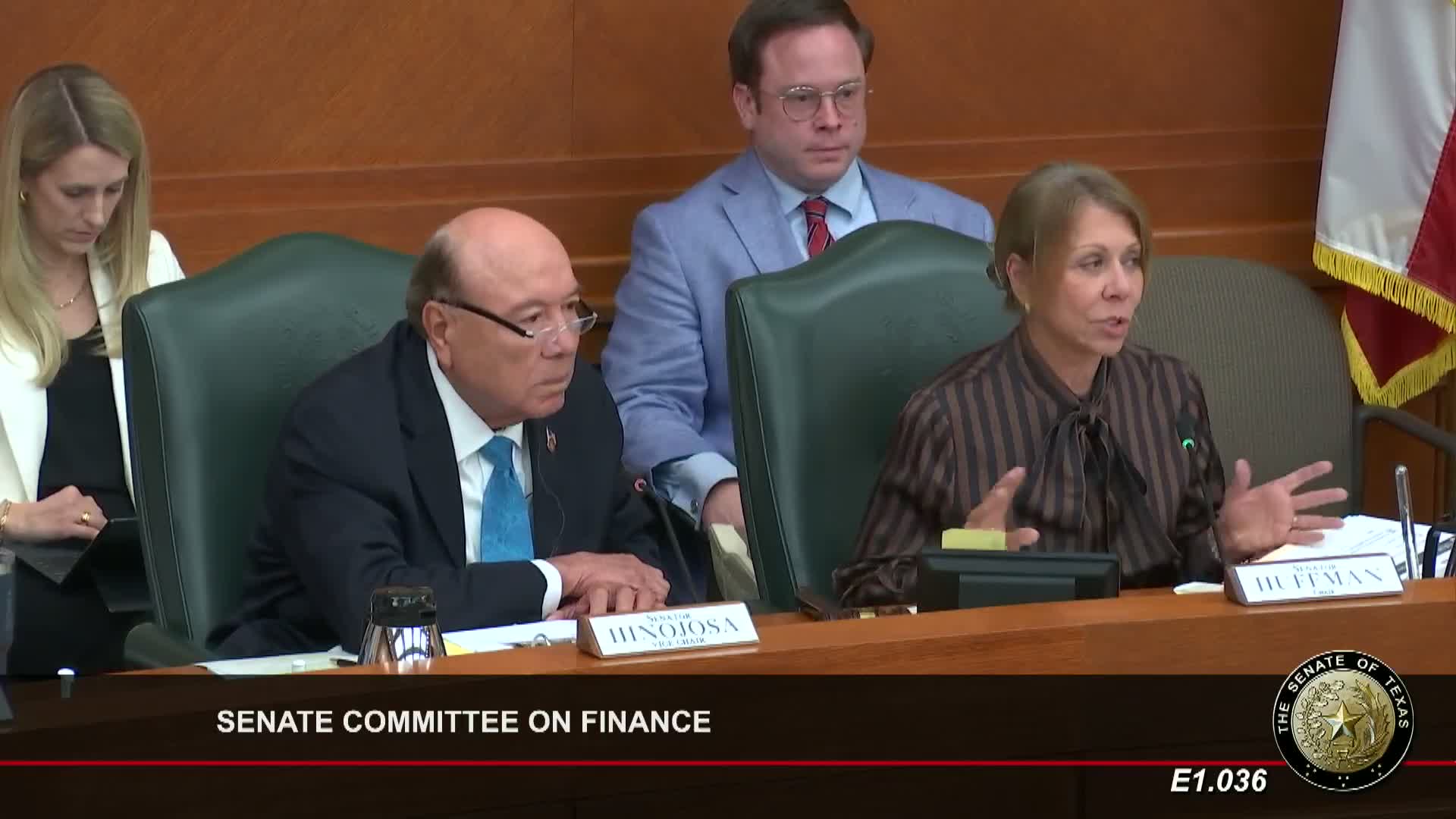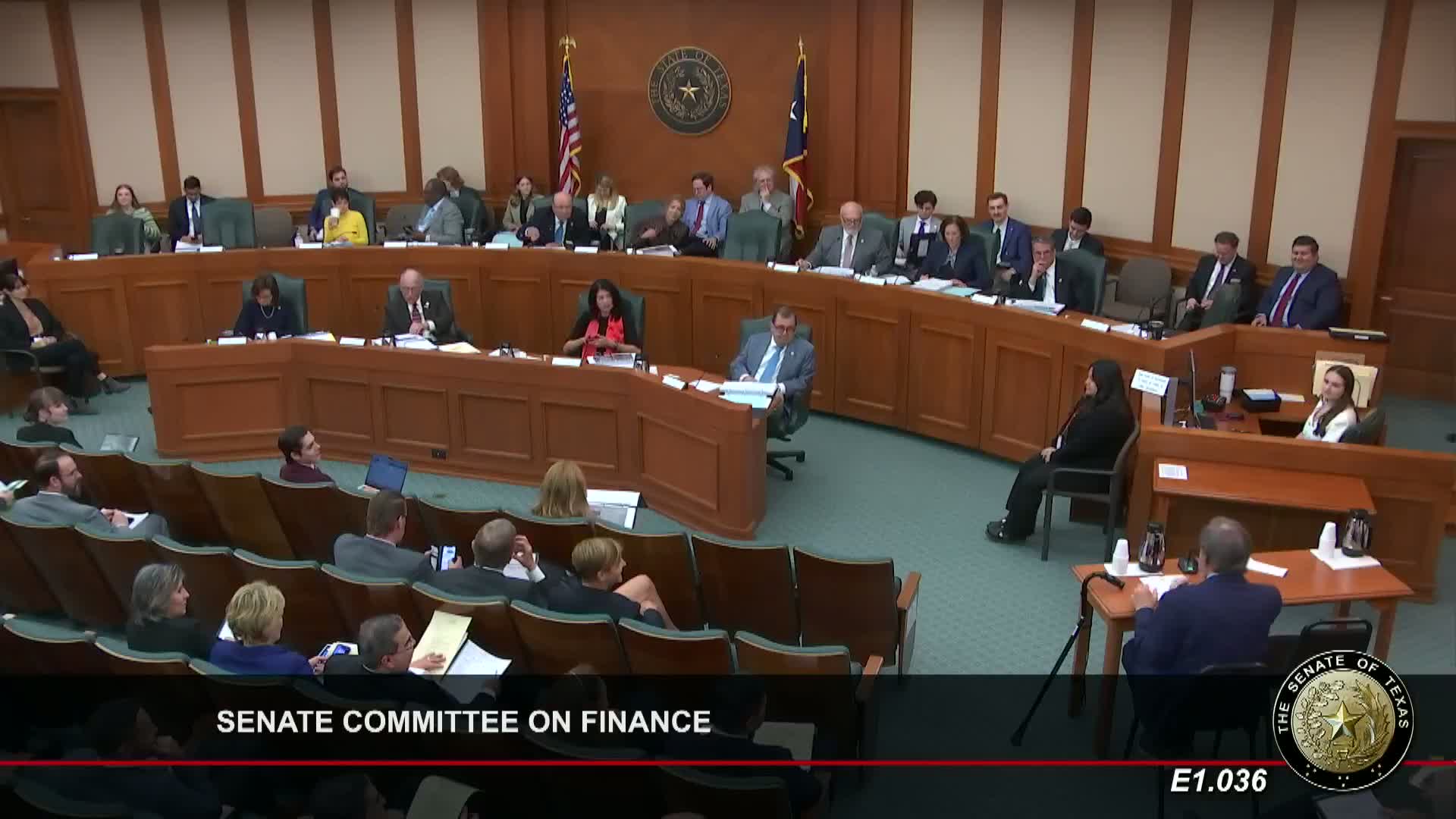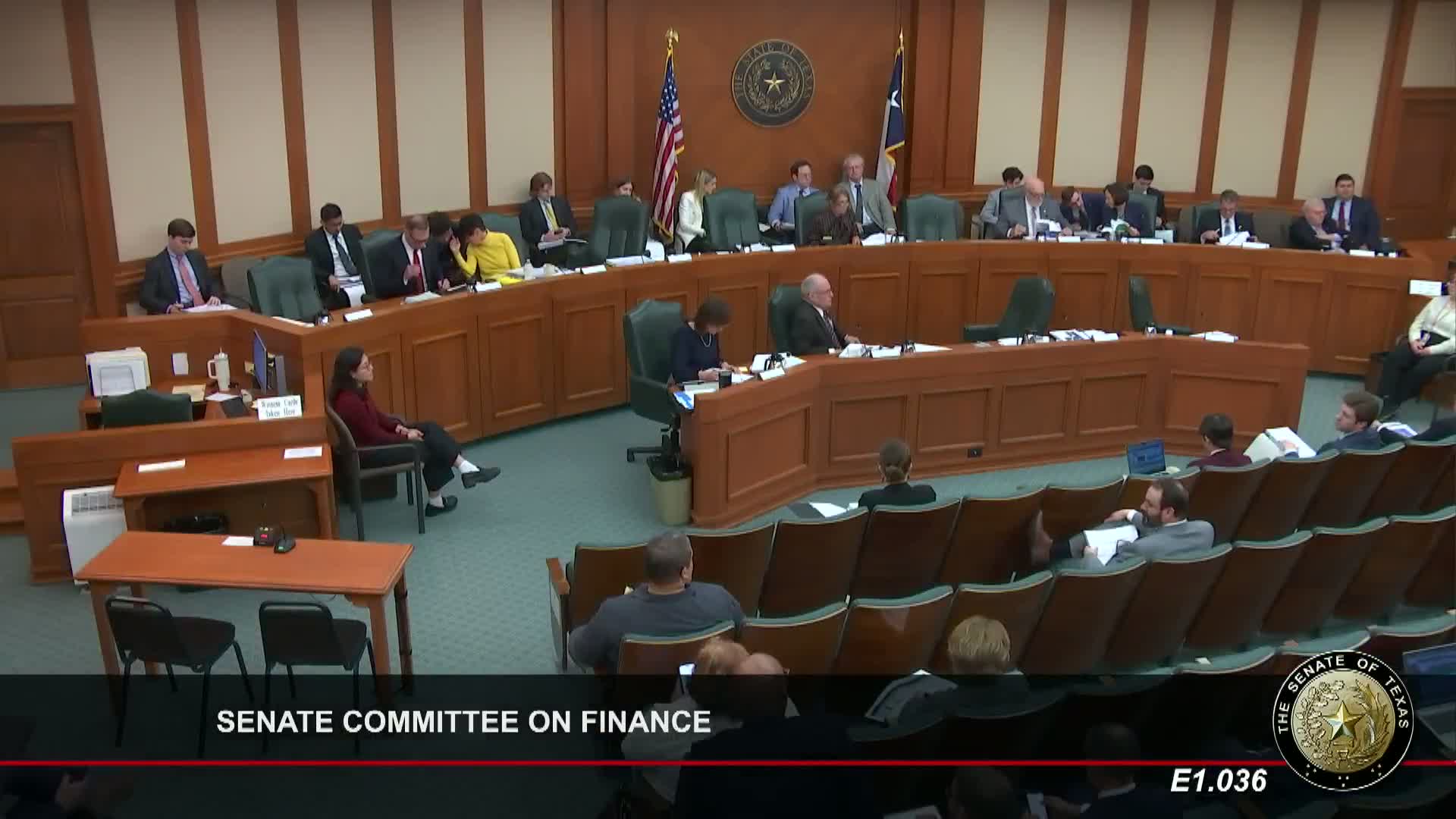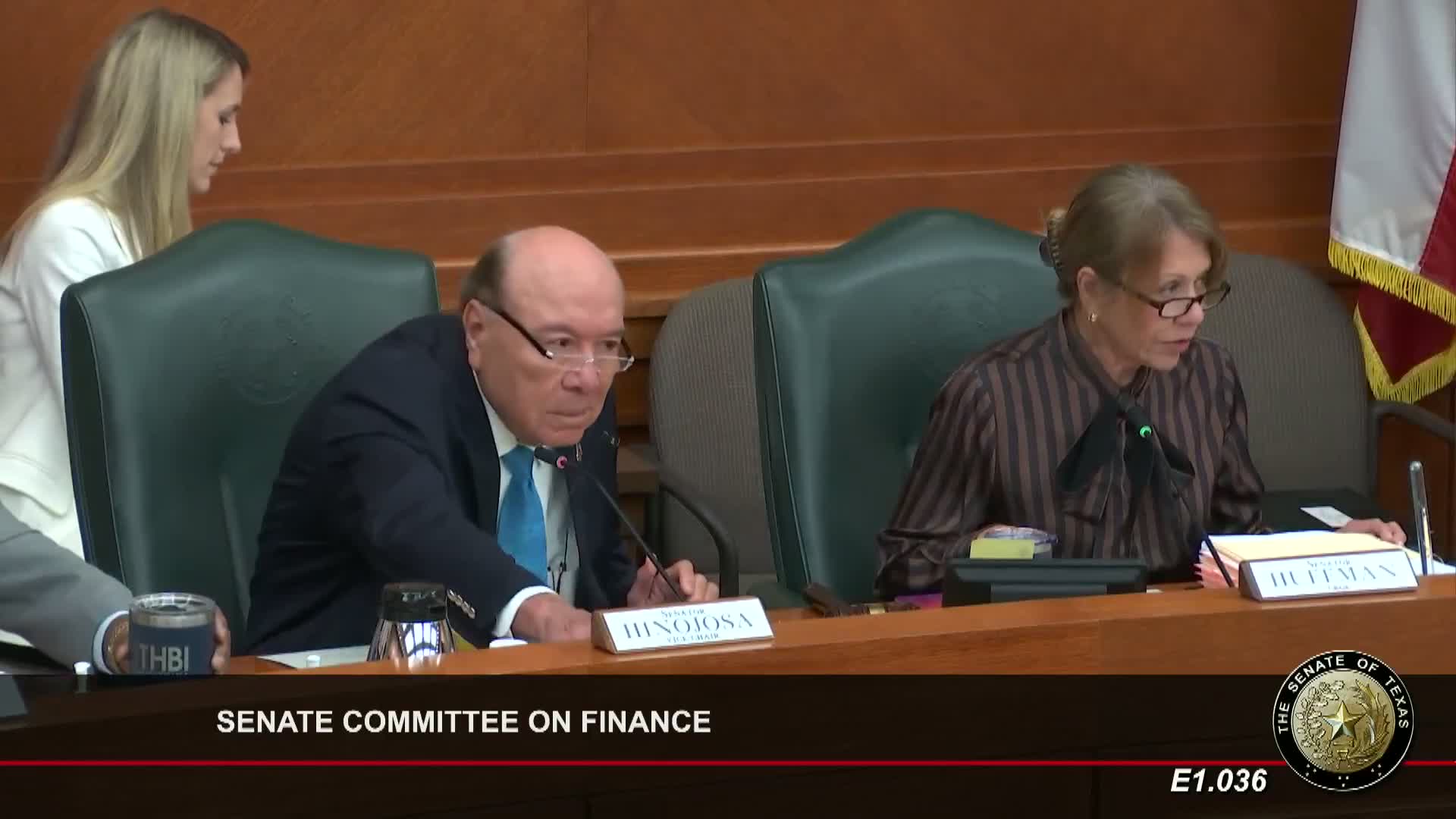Article not found
This article is no longer available. But don't worry—we've gathered other articles that discuss the same topic.

A&M research and training agencies pitch workforce investments and emergency preparedness funding

Chancellor John Sharp urges formula, HEAF and capital funding; highlights RELLIS energy proving ground

TDEM asks for regional warehouses, staff and expanded program authority as federal grants wind down

